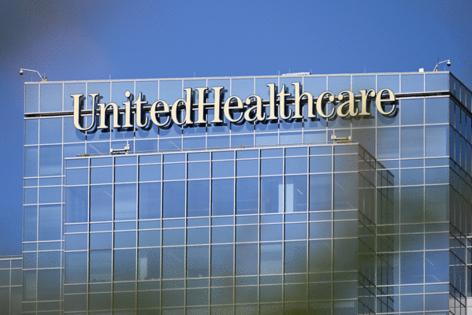What is the Justice Department investigating at UnitedHealth Group?
Published in Business News
UnitedHealth Group, one of the biggest health care companies in the world, confirmed Thursday that it’s cooperating with federal investigators probing the company’s large Medicare business.
While the Wall Street Journal had previously reported on the probe quoting unnamed sources, this was the first public acknowledgement by the Minnesota-based health care company.
UnitedHealth had downplayed the investigation, calling the Journal’s report “deeply irresponsible” earlier this year.
The probe is focused on UnitedHealthcare, the largest health insurer in the nation, which is owned by parent company UnitedHealth Group. Overall, the parent company employs about 400,000 people, including about 19,000 Minnesotans, at its Eden Prairie and Minnetonka offices.
Optum is the other major arm of the company; it manages pharmacy benefits and health care data and provides care directly.
UnitedHealth Group is worth $260 billion as of today.
The CEO of the insurance arm, UnitedHealthcare, was assassinated on a public sidewalk in New York City last year as he was walking into an investor conference. The parent company’s CEO, Andrew Witty, abruptly stepped down in May and was replaced by former chief executive Stephen Hemsley, who is now running the company. Once a darling for investors, UnitedHealth’s total market value as a company has sunk 50% in the past year on the turbulent news.
Here’s what to know about the company and the DOJ investigation.
What is Medicare Advantage?
Medicare is a government-funded insurance program for Americans 65 and older operated by the federal officials.
In the 1990s, Congress created Medicare Part C — more commonly known as Medicare Advantage (MA) — which allows private insurers like UnitedHealthcare to offer their own Medicare plans and doctor networks to consumers.
Widely advertised on television, MA programs are popular because they can be cheaper than regular Medicare supplements. They also may offer coverage for things like dental and vision care, which are not covered by the original program.
In regular Medicare, the federal government pays for health services after they’re delivered. MA insurers, however, are paid sums on a per-person basis by the federal government for care. The intent is to create incentives for insurers to cut down on waste and only approve care patients actually need.
But MA gives higher monthly payments when plans cover patients with more health needs. This creates a financial incentive to make patients appear as sick as possible on paper.
Auditors with Medicare’s inspector general’s office have said MA insurers including UnitedHealthcare have used “questionable” health-risk assessments to drive up payments in the past. Put simply, they’ve suggested UnitedHealthcare and other insurers may have improperly added health conditions to patients’ medical records.
MA insurers argue they are documenting patients’ needs, including areas where preventive care for less-acute problems can cut down on future health care spending.
What specifically is the DOJ investigating?
Federal officials have not said what they are investigating.
On Thursday, UnitedHealth filed a report with securities regulators acknowledging ongoing cooperation with federal investigators who are looking into its Medicare program. A company spokesman later confirmed the probe is related to the criminal investigation previously reported by the Wall Street Journal.
The Wall Street Journal has cited unnamed sources in reporting that the Justice Department’s criminal health care fraud unit is looking at how UnitedHealth Group deployed doctors and nurses to collect diagnosis data to boost government payments to the company’s privatized Medicare plans.
What does it mean for people who have Medicare Advantage?
The impact for people who have MA plans is indirect. If companies have been gaming the risk-adjustment system, it could drive reforms that reduce funding for the benefits provided by MA plans.
UnitedHealthcare, however, says it stands by the integrity of its MA program.
Outside of fraud allegations, MA has been a recent pain point for insurers including UnitedHealthcare as plan members have been seeking more care than anticipated, cutting into insurers’ profit margins. It remains to be seen whether UnitedHealth and other companies will make changes to their MA plan offerings for 2026.
©2025 The Minnesota Star Tribune. Visit at startribune.com. Distributed by Tribune Content Agency, LLC.












Comments